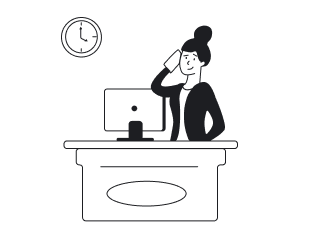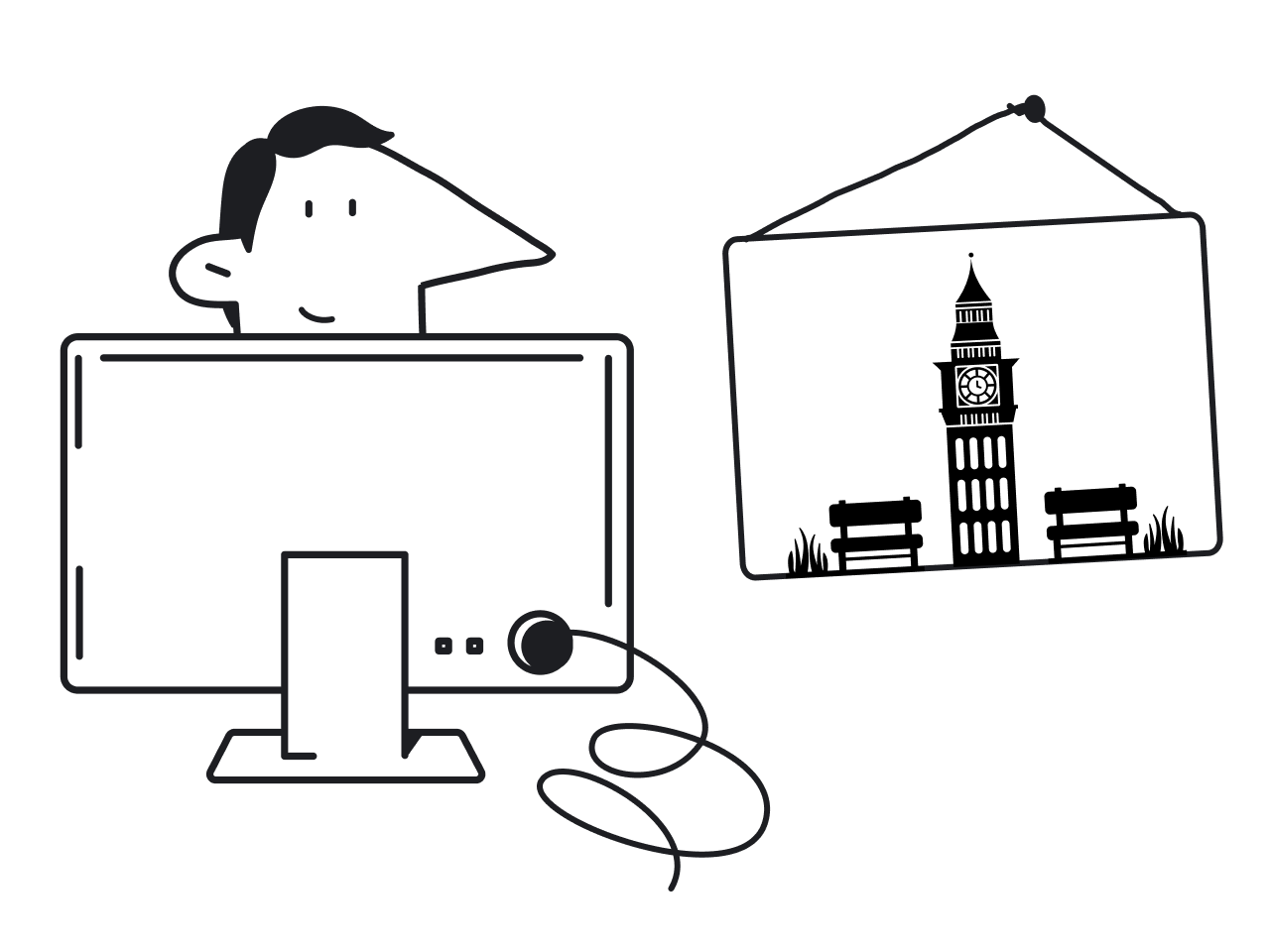When you want to have great design for your product, the first thing you probably do is try to find out how other people manage to make great designs. When talking about industry behemoths, their design teams count hundreds of people, while organization and culture are key. Their rules and practices have been polished through the years and now can inspire emerging small teams.
We are a design agency and we also find inspiration in other teams. From Wikipedia to Stripe, in this article we have collected some stories about successful in-house teams that explain how their culture is driving them to success.
Dropbox. A story about informal meetings and community

While Dropbox Design has a culture of accountability, ownership, high quality design and making sure you get your s*** done, it also has a culture of humanity, care, and understanding.
Chelsi Cocking, product designer at Dropbox
Dropbox design is a big team of over 170 designers that includes product designers, branding, graphic designers, and others. They have their own creative space within the company, and after you hear them tell you about their community, you want to work for Dropbox as well.
As their team went virtual-first in the last years, designers especially value the occasions to meet casually and use these moments to nurture their family team spirit. There are meetings for the creative community, including people outside of the organization. That way, Dropbox designers develop their creativity and have an influx of fresh ideas from outside. Also, in the internship programs, they try to do their best to give trainees some mentorship and give them a chance to get some real projects done.
Wikipedia. A story about diversity

It may be surprising to find out that Wikipedia has a team of designers consisting of more than one person. And it might seem a bit surprising indeed, given the fact that the website has only had slight changes over the last 20 years of its existence.
However, Wikipedia’s design team is not much about interfaces but about user experience. And to improve user experience and to make the website a better encyclopedia, they want to make it “a participatory global knowledge community”.
To become more globally oriented, the company hasto “focus on the people we don’t have – the regions, communities, cultures, languages”, says director of brand Zack McCune. To pursue this objective, the team is built of people from different continents that work remotely (far to the extent that finding time for a group call that would suit everyone is almost impossible). Diversity is extremely important for them.
Designers don’t try to make Wikipedia’s interface trendier. On the contrary, they like it the way it is: old school with “punk ethos”, black and white minimalism with blue links. All the saved time they dedicate to creative projects that bring their vision a bit closer.

Apart from that, Wikipedia is aiming for the next level of accessibility. They are looking for ways to be accessible not only to people with low vision or hearing impairments, but also to illiterate people. Though it seemed hardly possible for me to achieve at first, I then remembered my niece who started texting in messenger before she even learned how to write. So, in today’s world, I believe that the Wikipedia design team will make it.
Microsoft. A story about principles
One notable thing about the design process at Microsoft is that they start working on a new product with defining principles that form its basis. For instance, some of the principles of Windows 11 are “effortless”, “calm”, “personal” and “coherent”.
How can they be implemented? Let’s take “calm”. What stands behind this word is the intention to address the discomfort and anxiety that comes when people start using a new operating system. In design, it resulted in rounded corners and softer colors. We don’t have proof that it really reduced anxiety (yet) — but it didn’t hurt and surely helped to ensure consistency across the design.

Adobe. A story about stretching your capabilities

Adobe design is a big team separated into small teams by products. Their team culture is based on innovation, diversity, and creativity, like many other teams. And what is curious here is their support for new ideas. Here is a little story that shows how it works on practice.
Once, members of the Adobe Stock team decided to try Stretching. Not doing yoga in the office (though I bet they do it, too), but the management trick.
A Stretch Assignment is a project or task given to employees that is beyond their current knowledge or skill level in order to ‘stretch’ them developmentally. The Stretch Assignment challenges employees by placing them in uncomfortable situations in order to learn and grow.
- Josh Bersin, HR Analyst

It really helps people to get out of the hamster wheel of the Agile iterative process for a while. In Adobe Stock, they dedicated two weeks to this experiment.
What’s great about this team is that they know that 100% dedication to work tasks won’t last for long. In their blog, Adobe design team proudly tells about “hacks, hobbies, and side hustles” that their colleagues are passionate about outside of work.

Spotify. A story of bonding in bands
The challenge of making a great design team is similar to the challenge of making a great band.
- Nicole Burrow, Spotify
Spotify is known for particular and complex team organization, which we had discussed in our article about different team structures.
Design team has its own rules. In Spotify, they take the separation between design managers and senior designers who want to grow their creative careers without going into management very seriously. It is made to ensure that people who become team managers have chosen this way consciously and not just because they want to grow in their carreer.
Nicole Burrow says that personal bonding plays a big role in making that star designers band. In onboarding, there is a work-focused process as well as people-focused. Nicole rearranged the traditional seating scheme to give designers more opportunities for communication.
Before, each squad was sitting separately, which means that each designer was surrounded by about seven engineers.

After the rearrangement, each designer had peers from another squad sitting next to them so that they could bond. It resulted in increased creativity, work quality, and happiness level.

Stripe. A story about sharing and being imperfect
Stripe designers might not be as legendary as Apple's, but we can surely say that this app became a reference for many business owners. We can hardly count the times when clients came to us saying they want their product to look like Stripe. And, not surprisingly, the design culture of this company matches that level.
Stripe creative director, Ludwig Pettersson, says that sharing their work with each other is a highly important process. When the team grew to the point where this sharing didn't happen as naturally as before, they introduced processes to support these interactions.
In their day-to-day communication, Stripe designers use Wake. This collaboration tool is known for promoting feedback culture and fighting the negative consequences of perfectionism. In Wake, designers share their work-in-progress and discuss the unpolished versions, which makes it easier to receive feedback and make changes on the way.
What we got right, or lucked into, was investing a lot of energy into the design very early, and when we launched, everyone at the company got to experience why it’s worth investing in design.
- Ludwig Pettersson
One of the reasons why Stripe design is so well known is that they proved the value of design early. That’s something we can agree on, too: the earlier founders realize the value of design, the better for the future of the product.
Our story: collective knowledge and flexibility
Eleken is an agency, but each one of our designers is working with an in-house team. Working on different projects, our designers have unique experiences. When some of them face a complicated problem at work, they can tap into collective knowledge. There are regular feedback sessions where designers show their work to others and share their expertise.
As we are not an in-house team, each designer has to be flexible when working with the client’s team. They must adapt to fit into the work schedule, habits, processes, and cultures of the different teams they join. And once they adapt, they become an extension of the client’s team.
Now, what is your story about?
The secret behind successful work of huge teams with hundreds of people lies in simple principles that can be adopted in small teams as well. It’s a good idea to start thinking of it before you get to hire your first team.
Once you have clear principles and culture, it helps you in hiring: you can clearly see who wouldn’t fit even though they seem to have great skills. And if you need someone to join your team seamlessly, consider extending your team with our design talent.






.png)


.webp)



